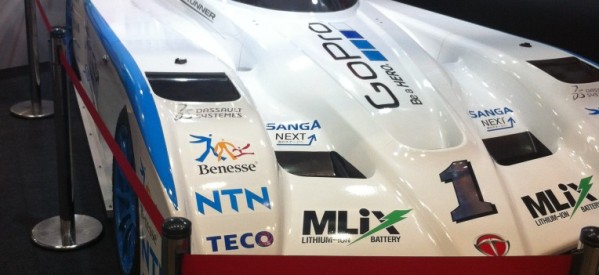Insiders feel that fuel cell vehicles may be unprofitable for another decade

Honda Motor Co., Toyota Motor Corp. and Hyundai Motor Co. are among automakers aiming to sell new fuel cell vehicles as soon as 2015. But the vehicles may be unprofitable for a decade after that.
Honda’s top engineer for the technology says his company expects the vehicles to be profitable by 2025.
Speaking at an automotive battery conference, Takashi Moriya, Honda senior chief engineer, said that’s when the prices of fuel cell vehicles will rival those of gasoline vehicles.
“It should come sometime by 2025,” Moriya said of the break-even point for fuel cell vehicles. “To do that, we need to drastically bring down prices, and that requires early mass production.”
Manufacturers need annual volume of at least 50,000 vehicles to reap savings from economies of scale, Moriya said. “That is the minimal level for cost reductions,” he said.
Honda plans to sell a new fuel cell vehicle in 2015 in the United States and Japan. That car will follow the FCX Clarity, which Honda introduced in 2008 through limited lease sales.
Moriya’s assessment comes despite automakers’ bold projections for slashing the cost of fuel cell drivetrains in the coming years.
The fuel cell stack accounts for nearly half the cost of the fuel cell powertrain system. And materials, including precious metals such as platinum, account for a third of the stack’s cost.
Automakers at the battery conference outlined several cost-cutting strategies. Among them: Honda is developing a smaller stack to cut material expenses.
Nissan aims to use more common parts and a more compact lithium ion battery, and it plans to combine components to eliminate others such as the hydrogen recirculation system.
In January, Nissan agreed with Daimler AG and Ford Motor Co. to jointly develop a fuel cell vehicle for sale as early as 2017.
Toyota, which plans to sell a hydrogen fuel cell sedan around 2015, wants to reduce the cost of that car to one-twentieth that of its FCHV-adv fuel cell vehicle.
Toyota started leasing the FCHV-adv, based on the Highlander crossover, in 2008. Toyota’s latest concept fuel cell vehicle, shown at last year’s Geneva auto show, is called the FCV-R, with “R” standing for “Reality.”
Toyota aims to make the vehicle it will put on sale more affordable by combining and reducing components. For instance, it plans to eliminate the humidifying system on the air inlet. It also will use less platinum in the fuel stack and less carbon fiber in the hydrogen storage tank.
Hyundai said it intends to sell a fuel cell vehicle in 2015. It aims to slash that vehicle’s cost to half that of Hyundai’s current fuel cell vehicle.
Hyundai’s latest fuel cell vehicle, the Tucson ix35, was introduced in 2012. The South Korean carmaker aims to build 1,000 units.
Ahn Byung-ki, a director at Hyundai’s fuel cell vehicle team, said the company wants to expand capacity to 10,000 fuel cell vehicles with the arrival of the next generation in 2015.






